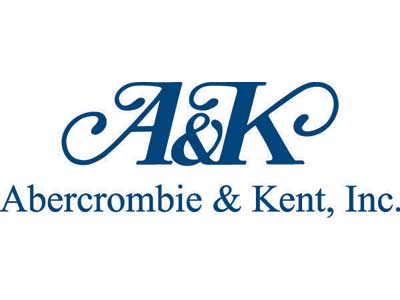Charter Bus Brokers-Roadside Assistance or Highway Robbery?
A friend of mine recently told me of some entrepreneurs who made money in the dentist referral business. It started with a TV commercial that offered potential customers “well-researched and highly-qualified dentists” in their local area. The prospect gave his zip code in exchange for a local dentist’s name and phone number. Inbound calls from the ad were converted into leads and sold to dentists. Because the promised research on the dentist was not being conducted, the ad was misleading. It didn’t matter what the dentist’s qualifications were to the entrepreneurs, just that they were willing to pay for the leads.
When you run a search on the internet for charter bus companies, you will come across a myriad of national charter bus broker services. These websites promise to set you up with well-researched, highly-qualified companies in their network at no cost to you. But is the service really at no cost? Are brokers actually researching these bus companies for their customers? Are the online national bus brokers operating a similar system to the dentist referral scam? Let’s investigate.
Recent news suggests that brokers aren’t researching bus companies as thoroughly as they should. The horrific Dallas, Texas bus fire on September 23rd that left twenty-three elderly Hurricane Rita evacuees dead was booked by the oldest of the “new wave” of online brokers, the Bus Bank. In a recent statement, the customer who booked the bus, Sarah Evers, noted, “It’s our understanding that Bus Bank has a rigorous evaluation process.” But the Bus Bank failed to disclose easily accessible information to its customer. Would Evers have booked the bus knowing that:
* the company had an expired registrations
* it had a driver safety rating of 97 out of 100 (100 being the worst)
* four drivers and three of the company’s vehicles have been ordered “out of service” over the past two years
* the company filed for bankruptcy protection against its creditors in February 2005
* since 2001, their drivers had been stopped more than a dozen times
* (following the accident) a compliance review found 168 violations of federal safety regulations, more than half related to maintenance and vehicle conditions.
As a result, Bus Bank was named one of the defendants in a $30 million dollar lawsuit.
System Breakdown
Even with the best intentions, the broker call center business model is flawed. There will always be an incentive for commissioned sales reps to choose the company that nets the highest profit margin without regard to quality of service. And there will always be the temptation to forego costly research to increase the bottom line. Many customers learn after their first experience going through a broker that they could have paid less and found a better bus had they done the work themselves. Customers are also learning that better salesmanship does not imply better value. This business model is designed to catch the one-time sale, not build relationships with its customers.
What about quoting? When travel agents, tour operators and other bus-related customers call an online broker for quotes, they are quoted rates and availability. But unlike the airline industry, no centralized database of real-time quotes and availability exists. Are brokers fabricating quote and availability information? After the sale is made, the broker has time to call down the list of bus-owning companies to find the lowest rate. If this is the case, thens we could sum it all up by saying that when you book through one of the online national bus brokers, you are just paying a 25% premium to book with the lowest-rate company in your area.
There is growing confusion due to the saturation of the Internet with national bus brokers. Four years ago there was one. Today there are around eight highly visible broker websites. It is becoming more difficult for customers to figure out who owns buses and who doesn’t. Many of these brokerage websites lead you to believe they own buses and that you will be chartering one of the buses they own. More customers are purchasing through brokers because there are more brokers among their choices. Broker websites are usually the first the customer finds on the internet. And the fewer the number of quotes the customer seeks, the more likely it is he will unwittingly purchase from a broker.
There are other pitfalls to booking through a broker than being overcharged and being set up with an un-researched company. For one, it can be more costly to resolve any disputes such as the bus not showing up, or the actual bus not being what you expected. Booking your trip outside your city requires you to file any complaints in the city the transaction occurred. If you reside in Detroit and you’ve booked a bus with broker out of Phoenix, be prepared to retain an out of state lawyer should any dispute arise. Also, because brokers do not have to register with the Department of Transportation or carry insurance by law, they have little vested in their business besides a desk and telephone. They can be very difficult to track down.
The Solution for Customers
When I ask bus owners the question, “if you could give customers one piece of advice before chartering a bus, what would it be?” These are the top three answers I get:
1. Run a search to check a company’s records in the FMCSA’s database: www.safer.fmcsa.dot.gov/CompanySnapshot.aspx.
2. Always look at the actual vehicle before you book.
3. Get a feel for how involved the company is in its niche. If you’re running a tour, make sure you have a touring coach and a driver familiar with dealing with tour passengers – not line runs.
As a customer, you lose control over crucial data when booking through brokers because they often don’t reveal the name of the company you are engaging until the day before travel to prevent you from buying that service direct. There is always a greater risk of communication breakdown when specifying trip details through a third party. The story inevitably changes as it’s passed from one ear to another. Going through a middleman increases the chances of misunderstanding, miscommunication and errors of omission.
The Solution for Bus Owners
It is important for bus-owning companies to raise the level of awareness among customers about the costs and pitfalls of going through a broker. Bus owners do not need to drop their rates for brokers who are already quoting rates about 25% above the national average. Bus-owning companies are the most efficient and economical point of contact when booking charters. By concentrating on the people and organizations that directly use their services, they will ensure the best possible customer care and grow repeat and referral business for years to come.
By Mark Greer – Mark is the president of www.BusRates.com, Inc. the first online database of bus-owning company fleet specs, amenities, and rates for potential bus chartering customers. BusRates.com is a free resource enables visitors to quickly locate specific bus types in their area and narrow down the number of potential bus companies that closely match their requirements.
Published in cooperation with Leisure Group Travel (www.leisuregrouptravel.com) a leader within the industry, delivering pertinent, timely content on the global group travel industry. Leisure Group Travel’s team understands intricately what planners deal with on a day-to-day basis and trends that are shaping the group travel marketplace.
 United Kingdom
United Kingdom United States
United States Asia Pacific
Asia Pacific












































Dozens fall ill in P&O Cruises ship outbreak
Woman dies after getting ‘entangled’ in baggage carousel
Turkish Airlines flight in emergency landing after pilot dies
Boy falls to death on cruise ship
Protestors now targeting Amsterdam cruise calls